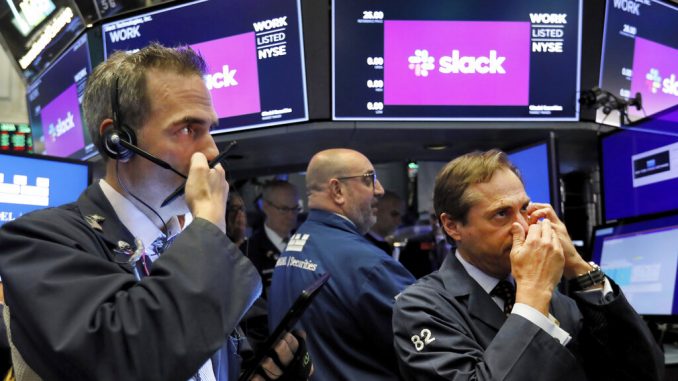
Workplace chatting service Slack has filed a complaint in the European Union against Microsoft, accusing the software company of anti-competitive behavior.
Slack said Wednesday that Microsoft illegally bundles its Microsoft Teams messaging product, which is similar to Slack, into Office 365, its package of email and other widely used business software. Slack says Microsoft forces companies to install it for millions and blocks its removal.
Microsoft Corp. said in a statement Wednesday that it looks forward to providing the European Commission with more information and answering its questions.
San Francisco-based Slack Technologies Inc., which went public in 2019, has been growing rapidly. It reported $201.7 million in sales in its February-April quarter, up 50% from the same time last year. It also reported 122,000 paid customers, up 28% from when the company went public in April 2019.
Slack still faces tough competition, particularly from Microsoft’s Teams software. Slack last month announced an expanded partnership with Amazon’s cloud computing division, an attempt to join forces with Microsoft’s chief rival. It more recently announced it is buying Rimeto, which creates detailed staff directories.
Microsoft, which is based in Redmond, Washington, emphasized in its statement Wednesday that the competitive advantage of Teams has been connecting people on video.
“With COVID-19, the market has embraced Teams in record numbers while Slack suffered from its absence of video-conferencing,” Microsoft said.
The European Commission will review the complaint and decide whether to open a formal investigation.
If the European Commission decides to investigate, Microsoft could potentially face huge penalties. The European Union’s powerful competition commissioner, Margrethe Vestager, who has been at the vanguard of the global movement to rein in big technology companies, has slapped Google with multiple antitrust fines totaling nearly $10 billion, which the company is appealing.
Last month the commissioner opened twin investigations into Apple’s mobile app store and payment platform over concerns that its practices distort competition, following a complaint filed by music streaming service Spotify.
But critics say big fines haven’t had much of an impact on tech giants, and Vestager has been weighing up stronger measures to curb their anti-competitive behavior.
Vestager was dealt a setback earlier this month, when an EU court ruled that Apple did not have to pay $15 billion in back taxes to Ireland in a case dating back to 2016, dealing a blow to the bloc’s efforts to clamp down on multinationals’ ability to strike special tax deals with individual EU countries.


